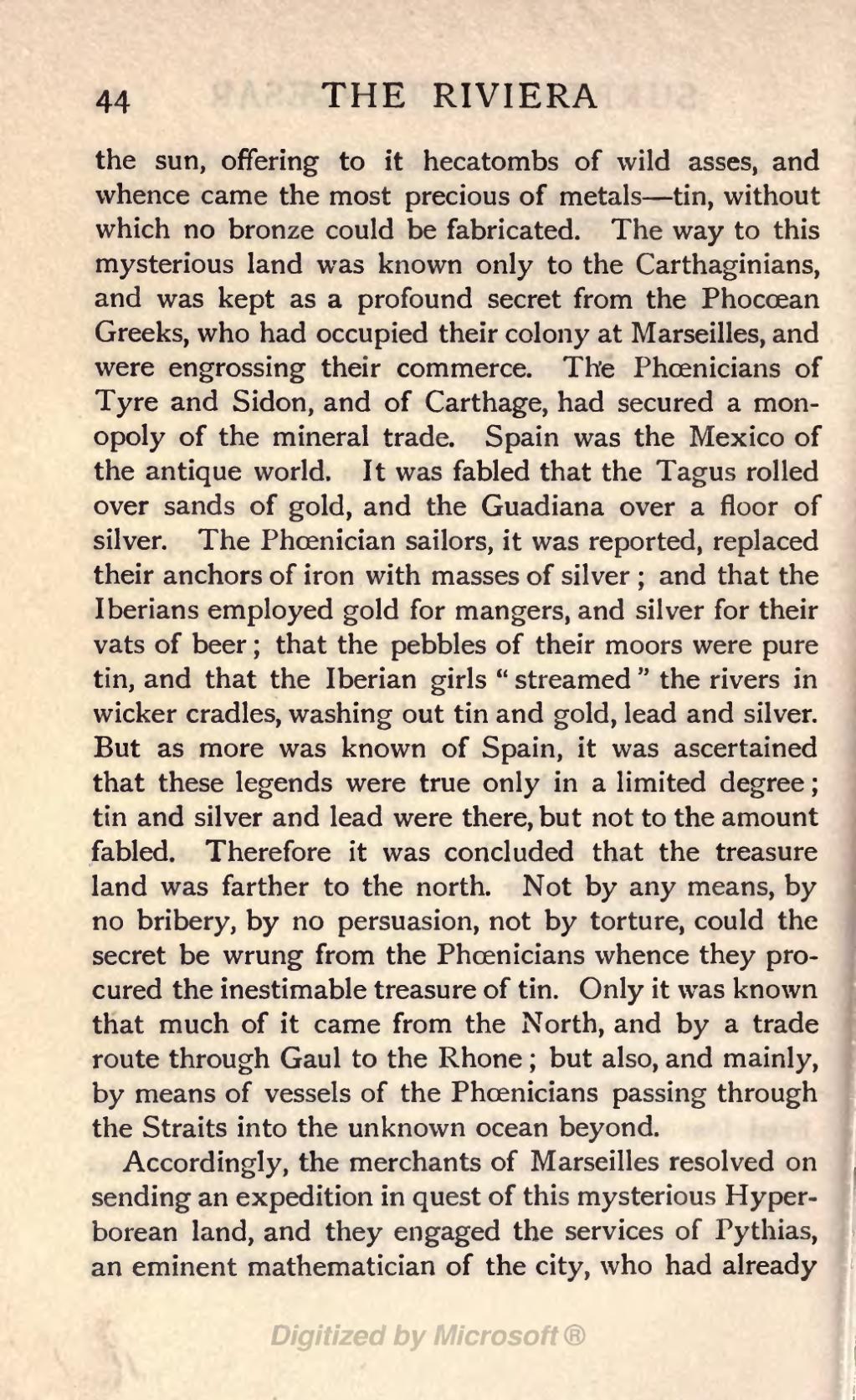the sun, offering to it hecatombs of wild asses, and whence came the most precious of metals—tin, without which no bronze could be fabricated. The way to this mysterious land was known only to the Carthaginians, and was kept as a profound secret from the Phocœan Greeks, who had occupied their colony at Marseilles, and were engrossing their commerce. The Phœnicians of Tyre and Sidon, and of Carthage, had secured a monopoly of the mineral trade. Spain was the Mexico of the antique world. It was fabled that the Tagus rolled over sands of gold, and the Guadiana over a floor of silver. The Phœnician sailors, it was reported, replaced their anchors of iron with masses of silver; and that the Iberians employed gold for mangers, and silver for their vats of beer; that the pebbles of their moors were pure tin, and that the Iberian girls "streamed" the rivers in wicker cradles, washing out tin and gold, lead and silver. But as more was known of Spain, it was ascertained that these legends were true only in a limited degree; tin and silver and lead were there, but not to the amount fabled. Therefore it was concluded that the treasure land was farther to the north. Not by any means, by no bribery, by no persuasion, not by torture, could the secret be wrung from the Phœnicians whence they procured the inestimable treasure of tin. Only it was known that much of it came from the North, and by a trade route through Gaul to the Rhone; but also, and mainly, by means of vessels of the Phoenicians passing through the Straits into the unknown ocean beyond.
Accordingly, the merchants of Marseilles resolved on sending an expedition in quest of this mysterious Hyperborean land, and they engaged the services of Pythias, an eminent mathematician of the city, who had already
